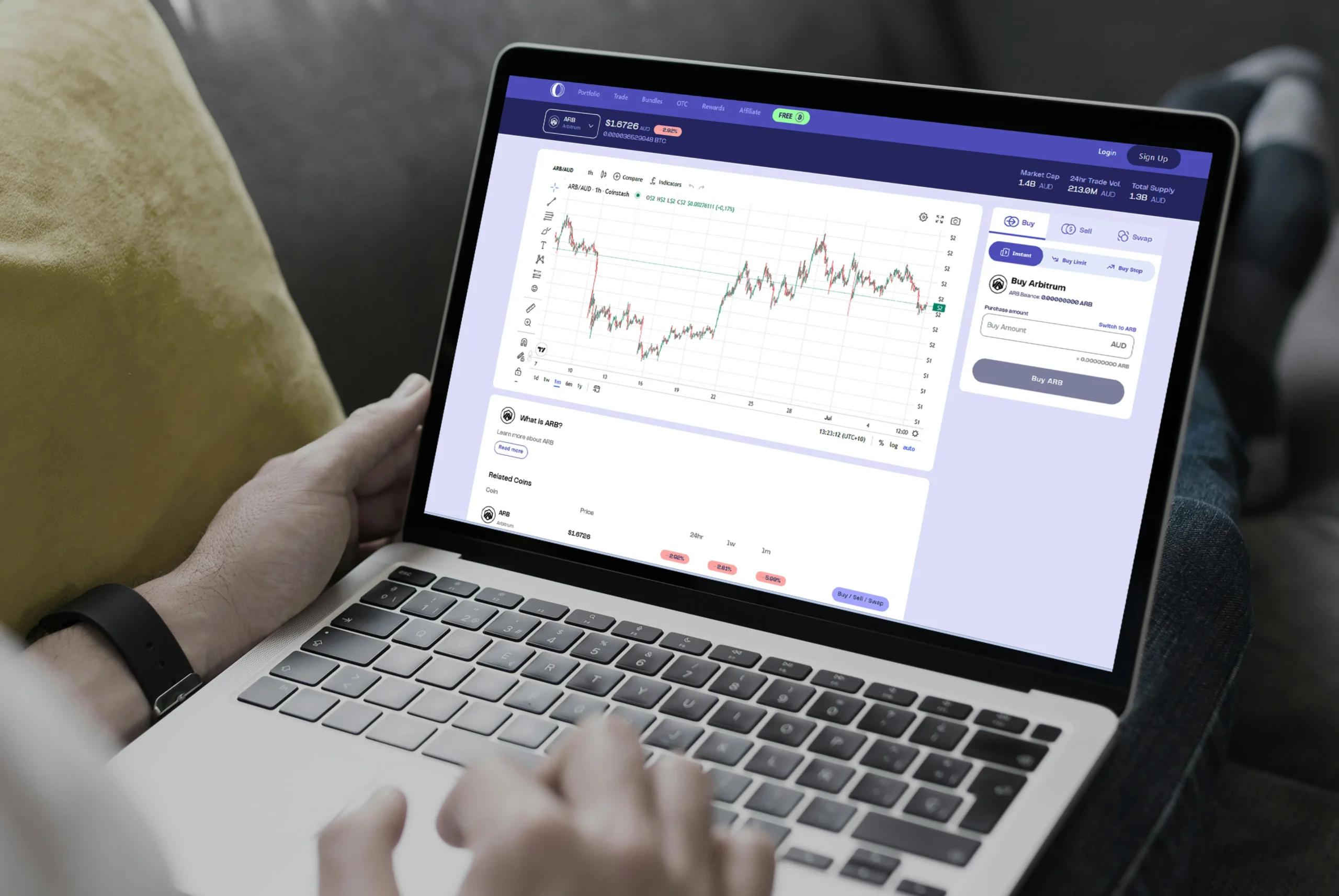Thinking about trying Bitcoin Code? It’s worth pausing before you move forward. A great number of people get drawn into platforms that claim to deliver automated profits with low effort. According to Chainalysis, crypto-related scams led to losses of more than $3.9 billion in 2023 alone.
The Bitcoin Code scam comes up constantly on forums, discussion groups, and crypto-related review sites. In this post, you will learn what Bitcoin Code is, how it works, why many users have shared questions, and the warning signs to consider before investing any money.
Need support after a scam? Join our community today.
Is Bitcoin Code a Scam?
At first, Bitcoin Code might seem like just another automated trading platform. But after reading user reviews and expert opinions, there are a few warning signs to be aware of. Many people consider it unreliable because it’s not regulated and makes unrealistic promises.
On platforms like Quora, users share similar experiences: they sign up hoping to earn fast money but end up having problems withdrawing their funds. Unlike vague claims like “Binance is a scam,” the complaints about Bitcoin Code are repeated often and come from many users.
Here are some of the most common warning signs:
- No clear information about who runs the platform.
- Fake testimonials with stock photos.
- Many users report that their withdrawals were never processed.
- No regulation from any trusted financial authority.
Real Testimonies From People Affected By Bitcoin Code
User: Linda L. (United Kingdom)
“I started with a small deposit of £250. At first, everything looked fine, but then I began getting daily calls pushing me to invest more. They said the system would multiply it within days. As soon as I asked to withdraw my profits, they stopped replying.”
Anonymous user (Spain)
“I invested the minimum. Just hours later, a so-called ‘assigned broker’ called me. He insisted I should add more money to my account. When I refused, I lost access. My funds were never returned.”
User: Rafael C. (Spain)
“What you see on the dashboard isn’t real. They show fake earnings to keep you hooked. The moment you ask to withdraw, the excuses begin. It was frustrating, and I couldn’t reach anyone to fix the situation.”
User: Jorge R. (Latin America)
“I found them through an ad on social media. The next day, someone called, and it all seemed legit. But after I sent the money, they started pressuring me constantly. I tried to withdraw on the fourth day and never accessed my account again.”
These stories are not isolated. The Bitcoin Code scam seems to follow the same pattern in different countries: users are pressured into depositing money, then locked out without help or answers. There’s no clear company information, no regulation, and no one taking responsibility.
With so many real people sharing similar experiences, it’s clear this isn’t just a bad platform—it’s a scam. And as long as it keeps running without auditing, more people are at risk of losing their money.
What is Bitcoin Code?
Bitcoin Code is a cryptocurrency trading bot that claims to use artificial intelligence to analyze market prices and detect profitable opportunities. Here are other features:
- It’s described as easy to use and doesn’t require trading experience.
- The platform claims users can earn daily profits starting with a $250 deposit.
- It also mentions a 99.4% success rate and fast trade execution of 0.01 seconds.
How Does Bitcoin Code Work?
According to its description, Bitcoin Code processes market data using AI and machine learning algorithms to identify the best moments to buy or sell. It offers two main modes:
- Manual mode: Sends trade alerts based on market analysis, but the user decides whether to act.
- Automated mode: Analyzes the market and executes trades automatically on behalf of the user.
The platform is designed with a simple interface, making it accessible even for beginners. Users don’t need to spend hours monitoring the market, as the bot is meant to handle the heavy lifting.
Real Differences Between Bitcoin Code and Legitimate Bots
There are platforms that genuinely use automation to support crypto trading and operate within well-defined regulatory environments. When compared side by side, the contrast with Bitcoin Code is clear. Its lack of transparency and oversight reflects patterns seen in some of the most famous fraud cases in crypto.
1. No Regulation Or Traceable Company Data
Any trustworthy platform should operate under the supervision of recognized financial institutions, such as the FCA in the UK, the SEC in the US, or CySEC in the EU. Without this, users are left exposed and without protection. In this case, there is no official record of Bitcoin Code being registered or monitored by any financial authority.
- Example: A quick search for the company behind Bitcoin Code returns no results on regulatory databases. There’s no legal address, license number, or corporate name. You simply can’t confirm who is behind it.
2. Fake Testimonials With No Verification
Sites like these often use stories that seem positive but can’t be verified. They display images from photo banks and use names that feel generic. Some users have even noticed that these testimonials change depending on your location.
- Example: One success story features a smiling person with an impressive profit. After a reverse image search, it turns out the photo is from a stock site. The same text appears on other sites with different names.
3. No Real Customer Support
One of the most basic expectations is to be able to reach someone when things don’t go as planned. But with Bitcoin Code, that contact doesn’t exist—or it’s just an automated system that never leads to an answer.
- Example: After making a deposit, the platform shows login errors. Attempts to reach support through chat go nowhere, and emails remain unanswered.
4. Pressure Tactics To Push Deposits
Some users report being contacted by phone shortly after signing up. These calls are meant to create a sense of urgency and push you to deposit money fast. They focus more on convincing you than informing you.
- Example: After signing up, a call arrives explaining that “this opportunity won’t be available tomorrow.” If you ask for time to think, the tone becomes more intense.
5. No Clear Connection To Licensed Brokers
Bitcoin Code claims to work with “trusted brokers,” but never names them. Legitimate brokers are public, registered, and can be verified. In this case, everything stays vague.
- Example: The platform mentions that trades are backed by regulated brokers. However, there are no names, links, or certifications provided. When users ask for details, no answers follow.
Trading bots are utilized by approximately 38% of cryptocurrency users, yet they account for nearly 86% of the total trading volume, according to a recent Reddit post. That shows there’s demand for automation, but not every bot plays by the same rules—or delivers safe solutions.
Have questions about dealing with scams? Contact us for support.
Who Is Behind Bitcoin Code?
Bitcoin Code claims it was created by someone named Steve McKay, a supposed software developer who designed the system to spot trading opportunities in the crypto market. But when you try to verify this identity, one thing becomes clear: there’s no transparency.
There’s no public profile, no technical background, no published work, and no online presence linking this person to any real financial or tech project.
Warning Signs Around the Alleged Creator
- The name Steve McKay only shows up on websites promoting Bitcoin Code.
- There are no interviews, articles, or mentions from trusted sources.
- He’s not linked to any known development team, startup, or blockchain project.
- Other scams have used similar tactics—creating fake names to appear credible.
Using made-up founders is a common trick in crypto scams. In the case of Bitcoin Code, the fact that no real person is behind it isn’t just suspicious, it’s part of a common pattern used to deceive users and avoid accountability.
Are there Safe Alternatives to Bitcoin Code?
After seeing how the Bitcoin Code scam works, it’s normal to ask: what are the safer options? The good news is that there are reliable trading platforms out there—regulated, with strong reputations, and years of experience in the crypto space. Choosing the right one can make all the difference.
A smart way to protect your money is by using brokers that are licensed, offer real customer support, and let you withdraw your funds without problems.
What Should You Look For In A Reliable Broker?
- Proven track record: A broker with several years of uninterrupted operation tends to have more stable processes. Platforms like eToro (established in 2007) and Kraken (active since 2011) have operated through different market cycles without shutting down.
- Asset variety: Good brokers offer more than just crypto. You can also trade stocks, ETFs, or commodities—all from the same account, which helps you diversify easily.
- International regulatory oversight: eToro and Kraken follow strict standards in regions such as the U.S. and Europe. These include identity verification procedures, anti-fraud policies, and regular reports to authorities like FinCEN, the FCA, or CySEC.
- Transparent fees: Before every transaction, you can view the full breakdown of fees on-screen. Nothing is hidden or changed afterward. This lets you trade with more confidence, without needing to guess how much a single action will cost.
If you’re searching for a more trustworthy alternative to the Bitcoin Code scam, it’s worth taking a more detailed look at platforms that run transparently. Up next, we’ll compare two well-known brokers recognized for their legal compliance and industry presence.
| Feature | eToro | Kraken |
| Regulation | FCA (UK), CySEC (EU), FinCEN (US) | FinCEN (US), FCA (UK) |
| Available cryptocurrencies | 70+ | 200+ |
| Minimum deposit | $50 | $10 |
| Fees | Variable spread | 0.16% – 0.26% per transaction |
| Customer support | Live chat and email | Ticket system and phone assistance |
| Built-in wallet | Yes | Yes |
| Security level | High – 2FA and encryption | Very high – 2FA and cold storage |
| Best suited for | Beginners | Experienced users |
Both platforms provide transparent, verifiable conditions for trading cryptocurrencies, something that couldn’t be further from what the Bitcoin Code scam offers. While one platform may work well for beginners, the other tends to suit those with more trading experience. In either case, users operate within a regulated environment.
Protect Your Investment: Stay Away from a Bitcoin Code Scam
The lesson from the Bitcoin code scam is very clear: platforms that operate unregulated, provide no trustworthy support, and make exaggerated claims. If a platform seems designed to rush you, hides who’s behind it, or avoids explaining how withdrawals work from the start, it’s better to pause and reconsider.
At Cryptoscam Defense Network, we support users who have been affected by scams like this one. We also guide those with concerns about schemes like Ponzi cryptocurrency schemes or platforms with fake returns.
We Want to Hear From You!
Fraud recovery is hard, but you don’t have to do it alone. Our community is here to help you share, learn, and protect yourself from future fraud.
Why Join Us?
- Community support: Share your experiences with people who understand.
- Useful resources: Learn from our tools and guides to prevent fraud.
- Safe space: A welcoming place to share your story and receive support.
Find the help you need. Join our Facebook group or contact us directly.
Be a part of the change. Your story matters.







